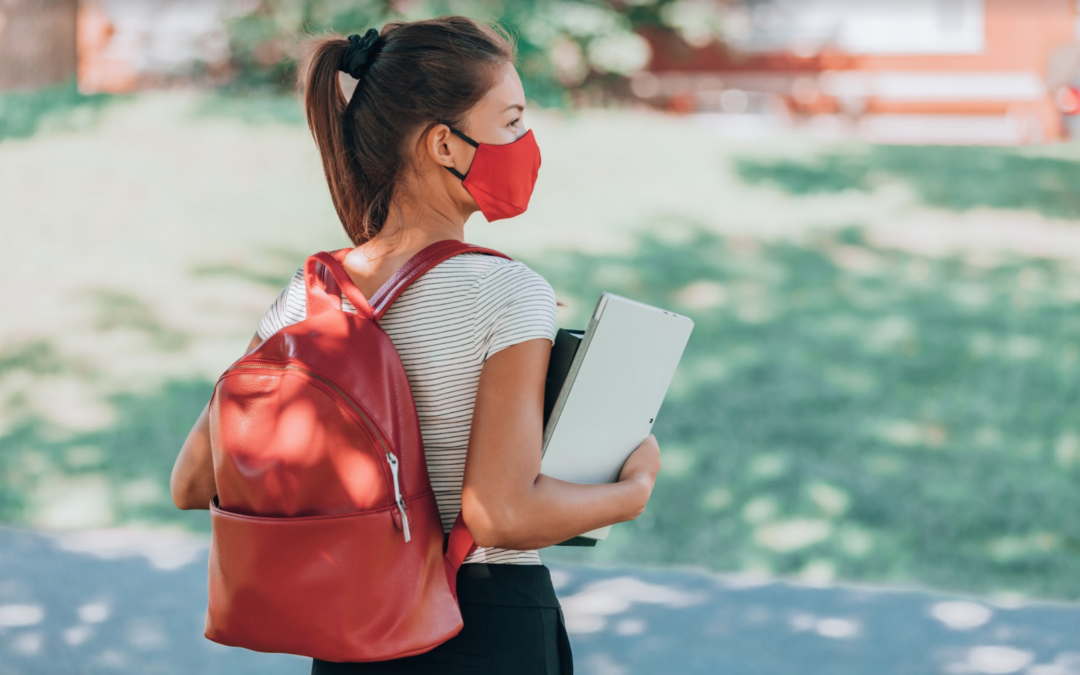By Devon Sereda Goldie
It’s hard to believe that it’s back to school time already — it seems like just yesterday that the pandemic forced us from our classrooms into quarantine. But here we are — back in the classroom…erm…sort of. Just about every university in the country has moved to online classes for this year. Back to school can be hard enough, let alone moving to entirely online classes on brand new, confusing, and definitely not fail-proof platforms! So as someone who has been around the university block many, many times — 22 semesters to be exact — in a few different roles, I thought I would offer some advice to my fellow students!
Self Care
First and foremost, don’t forget to take care of yourself. I am the absolute worst offender for this, but the reality is that we each only get one body — and (unfortunately) it has limitations. I’m sure we’d all love to be able to function perfectly on no sleep and a crappy diet, but you can’t. Trust me, I’ve tried. You’ll feel so, so much better if you take the time to do that little bit of self care. Get enough sleep, drink water, get some exercise, do some mindfulness exercises if that’s your jam — whatever your body is telling you it needs. If you’re someone like me who has a disability (physical, mental, cognitive, etc.), this is even more important! You can’t bring your best self to the table if you haven’t accounted for your needs.
Study Tips
Some of these I’m sure will not be new to you, but I promise you, they’re worth incorporating into your routine, especially in the new realm of online learning!
- Make Yourself a Schedule
Take the time to read through your course syllabi and schedule when you are going to work on the material for each class. I strongly recommend setting aside a block of time weekly for each course you’re taking. This is especially key for asynchronous courses that don’t have regular online class meetings — those due dates are going to sneak up fast, and without in-person classes, you won’t have anyone to remind you that you have a discussion post due on Wednesday. - Study Groups
I am a HUGE fan of study groups — I wouldn’t have gotten through my graduate theory courses without them. My advice is to find a small group of students in your class (2-8) and schedule a weekly or bi-weekly study session the day before your class. This gives you the time and space to talk about challenging readings or assignments with your peers before they’re due! Not sure you fully understand a topic? Study group. Confused about an assignment? Study group. Just want to gossip and catch up? Study group! They’re the best. - Learning Strategies
I know you’ve probably heard this term a million times from your university and just rolled your eyes. But seriously – if you can figure out how you learn best and adapt your studying techniques accordingly, it can make your study game waaaaay more effective! Are you a visual learner? Auditory? Verbal? Kinesthetic? For me personally, I am very much a verbal and auditory learner. One of the best discoveries that I made was Text-to-Speech and Speech-to-Text tools! I often have a hard time fully absorbing information when simply reading it off the page, so I started using Text-to-Speech tools to read my readings to me out loud. I also tend to have a hard time getting my initial thoughts onto the page when writing, but can easily explain what I want to say by speaking out loud. By using Speech-to-Text tools, I was able to save myself a ton of time by literally speaking my ideas onto the blank document. These small changes to my study routine made a world of difference! If your university has a Learning Strategist, I highly recommend making an appointment! There are likely simple changes you can make that will make your life a whole lot easier!

Assignments
Having worked as a Teaching Assistant for the past two and a half years, I can tell you that often the difference between a B and an A is taking the time to make sure that you are handing in a polished product that meets the requirements of the assignment. My two biggest pieces of advice are:
- Really read the assignment requirements
Like really. Before you start the assignment, read exactly what your prof wants from you. Then do it. Seriously, this is something I wish someone had told me when I was in my undergrad. You might be surprised how often assignments are submitted that miss very simple requirements, and then lose significant marks. We as students have a tendency to want to overcomplicate things — you don’t need to do that. Trust me, it’s not oversimplifying to do exactly what you’re asked to do. You might be pleasantly surprised by how well you do. - Leave time to proofread before submitting
I was notorious for this in my undergrad – I would finish the assignment minutes before the deadline and send it off without a final proofread. Spoiler alert: your TAs and Profs can tell that you finished it at the last minute! I was so embarrassed when I realized that as a TA — oooops! How can we tell? The most common mistakes are typos, forgotten sentence fragments that were meant to be deleted, inconsistent capitalizations and grammar, and citation errors. All things that are really easy to fix if you leave yourself enough time to do it. I highly recommend giving yourself enough time to do one last proofread and edit before the deadline. In an ideal world, finish the assignment the night before it’s due and then sleep on it. Some time away helps your brain pick up on the little mistakes that it might have missed after staring at the document for hours on end.

Isolation vs. Socialization
The biggest challenge I foresee in online learning is student isolation. Most students will be taking classes at home or in their university residences — essentially alone. This is going to be new and challenging for a lot of students. Isolation is a more familiar issue for grad students, who spend multiple semesters cloistered away writing their theses/dissertations. As one of those grad students, I am familiar with academic isolation. The best advice I can offer on this front is to find innovative ways to socialize! Connect with your peers in as many ways as you can – both online and in-person if you can do so safely. Ukrainian University Student Organizations (USOs) are perfect for this! I encourage you and your local USOs to get creative this semester — try Zoom trivia and game nights and Zoom “pub crawls” (AKA drinking together online)! Let’s be alone together!
Ask for help
Last but not least, don’t be afraid to ask for help, especially in your online classes! I absolutely guarantee you that someone else has the same question — whether it’s content or technology related! Many of your Profs and TAs are completely new to online teaching and they will likely appreciate you seeking clarification! And don’t be afraid to take advantage of Prof and TAs’ office hours — they are there to help you and they want you to succeed.
This year is going to be a challenge for all of us, but I guarantee you that you are going to make it through to the other side. Do your best and take care of yourself. I believe in you.

